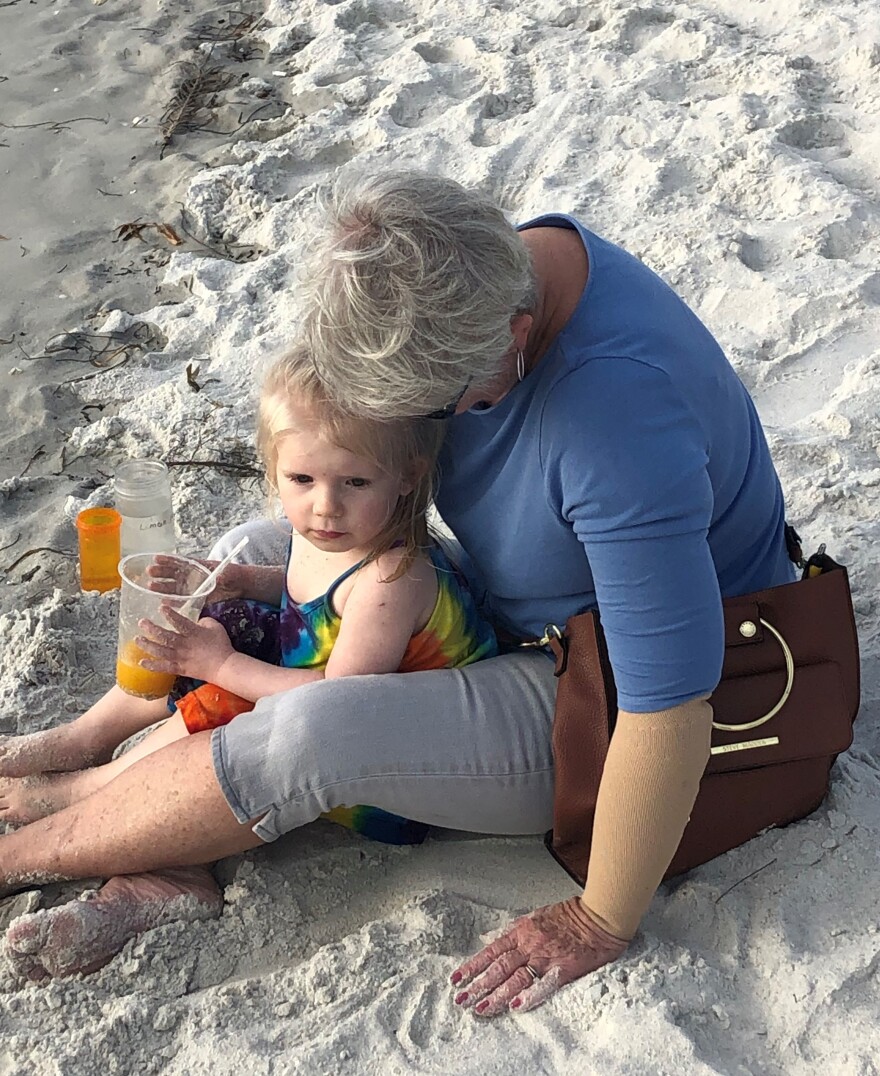Some older Iowans who spend part of the year in Florida are having to decide where they’ll be safer from the new coronavirus. Now’s the time when many are choosing whether to come back to Iowa or ride out the crisis where they are.
Retirees Deb Wernli and her husband Dennis split their time between Iowa and southwest Florida. They’re well-aware the Sunshine State is lighting up with cases of COVID-19, after the governor there resisted calls to shut down the tourism industry.
Still, Wernli says her adult children convinced her she’s safer in Bradenton, Fla., where her pantry is already stocked. So she and her husband have decided stay, and they’ve hardly left the house since, apart from some grocery shopping and to tend to the flowers in their yard.
“If we went back to Iowa we’d have to go out and do shopping and all that because we haven’t been there since the month of December. And so [the kids] kinda had this meeting and called us individually then and said, we’ve all talked and you stay put,” she said, chuckling. “I guess they grounded us this time.”

Steve Reno of Altoona said he and his wife Joanna decided to leave their second home in Largo, Fla. earlier than they had initially planned, in part out of concern for how the virus was spreading in the nation’s third largest state.
“The timing was absolutely pushed forward by the coronavirus,” Reno said. “We thought we’d better get ourselves back here.”
Without further action from state and local officials, Reno said he was dismayed to seetourists continue to flock to the state’s beaches, even as the threat of the new coronavirus became increasingly clear.
“Many people saw the pictures of the beaches that I live near, between St. Petersburg and Clearwater, packed with spring breakers,” Reno said. “It took the government quite a while to even realize this was not a smart thing to be doing.”
Bob Buresh and his wife Mary also decided to head back to Iowa earlier, arriving in Tama from The Villages, considered the nation’s largest retirement community, and home to some 115,000 people. IPR spoke to Buresh the day before he and his wife made the drive from central Florida back up to Iowa.

“I think we’re safer to go to a rural community,” he said. “Like where I’m going, back home, it’s only 2,500 people versus 130,000, you know what I’m saying?”
Wernli, Reno and Buresh told IPR that they and their spouses have taken it upon themselves to self-isolate in their homes, a step that some are still resistant to do.Public health officials in Iowa have urged anyone entering the state to self-isolate for two weeks and to monitor themselves for symptoms.
Federal officials have estimated that as many as 25 percent of peopleinfected with the virus may be asymptomatic.
Wernli says some of her friends in Bradenton aren’t listening to the calls from public health experts to stay home as much as possible and to practice social distancing.
Some of her friends continue to gather in their patios and driveways in the evenings to enjoy each other’s company. But Wernli says she’s staying in.
“I think it’s us as individual citizens need a take a serious look at this and say hey, I gotta do this for not only me but for my family and the people that I know,” she said. “So many of them don’t seem to be taking it as serious.”









